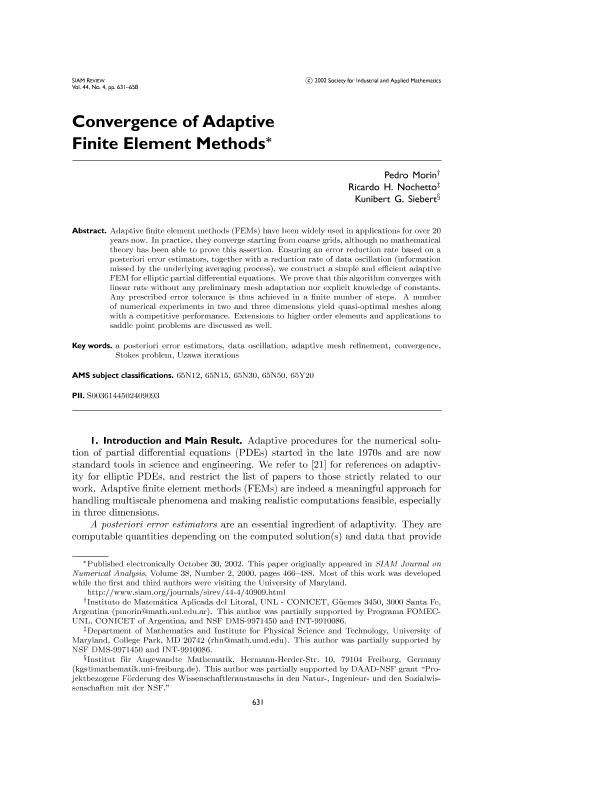Artículo
Convergence of Adaptive Finite Element Methods
Fecha de publicación:
12/2002
Editorial:
Society for Industrial and Applied Mathematics
Revista:
Siam Review
ISSN:
0036-1445
Idioma:
Inglés
Tipo de recurso:
Artículo publicado
Clasificación temática:
Resumen
Adaptive finite element methods (FEMs) have been widely used in applications for over 20 years now. In practice, they converge starting from coarse grids, although no mathematical theory has been able to prove this assertion. Ensuring an error reduction rate based on a posteriori error estimators, together with a reduction rate of data oscillation (information missed by the underlying averaging process), we construct a simple and efficient adaptive FEM for elliptic partial differential equations. We prove that this algorithm converges with linear rate without any preliminary mesh adaptation nor explicit knowledge of constants. Any prescribed error tolerance is thus achieved in a finite number of steps. A number of numerical experiments in two and three dimensions yield quasi-optimal meshes along with a competitive performance. Extensions to higher order elements and applications to saddle point problems are discussed as well.
Archivos asociados
Licencia
Identificadores
Colecciones
Articulos(IMAL)
Articulos de INST.DE MATEMATICA APLICADA "LITORAL"
Articulos de INST.DE MATEMATICA APLICADA "LITORAL"
Citación
Morin, Pedro; Nochetto, Ricardo Horacio; Siebert, Kunibert G.; Convergence of Adaptive Finite Element Methods; Society for Industrial and Applied Mathematics; Siam Review; 44; 4; 12-2002; 631-658
Compartir
Altmétricas




